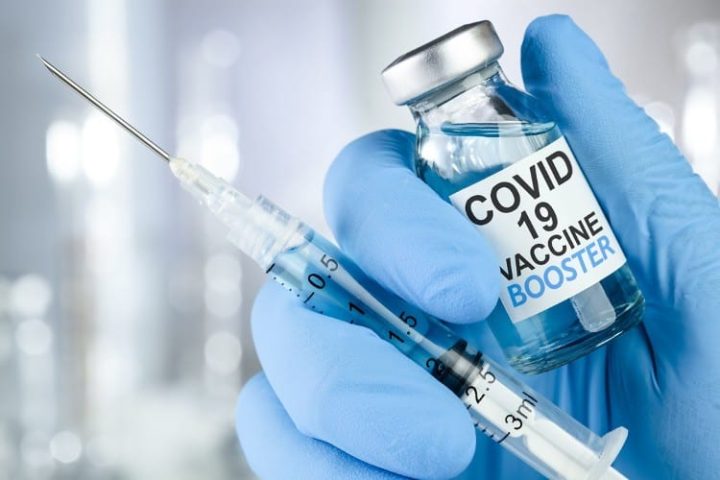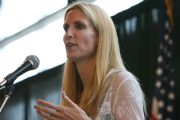
You or your child really wanted to get that college degree, but hundreds of universities across the nation — including the most prestigious ones, such as Harvard, Yale, Princeton, Brown, Columbia, and Cornell — have made COVID vaccination mandatory for both faculty and students once vaccines became available earlier this year. So you thought that getting a COVID shot was a small price to pay to achieve your goal and complied. But don’t be so naive to relax and think that you’re off the hook yet: Apparently, to continue your or your child’s education, getting a COVID booster shot is becoming a new requirement currently being adopted in a growing number of colleges.
“Has the definition of ‘fully vaccinated’ changed?” rhetorically asked Campus Reform in the title of its recent report on the growing number of colleges implementing a COVID booster mandate.
Per the report,
Emerson College, located in Massachusetts, announced that it will be requiring the booster shot for returning students, including those located on the Los Angeles and Netherland campuses. Students and employees must upload proof to an online platform.
Syracuse University, as well, issued a statement on December 6 announcing its plan on requiring boosters for returning students, staff and faculty within 30 days of eligibility, as recommended by the CDC. The policy goes into effect on Friday, January 21, 2022.
The University of Notre Dame made a statement regarding its extension of COVID-19 protocol. The booster will be a requirement for the spring semester for all undergraduate, graduate, and professional students — including those studying/practicing remotely.
One of the latest schools to announce the booster requirement became Salisbury University, a public institution located in Wicomico County, Maryland. During the virtual COVID-19 briefing, the schools’ President Charles Wight informed that “COVID-19 booster shots are not required for campus access.”
The rule specifies that beginning in January, all students will have to take a COVID test bi-weekly to maintain access to campus unless they get a booster within 90 days of their original shot for J&J and eight months for those who got Pfizer or Moderna. If that period has passed, campus access without testing will be continued or restored once a booster is received.
At the same time, mask requirements will remain in place throughout January, and may be “relaxed in some areas of campus in the spring based on COVID-19 case, positivity and booster rates.”
Almost as if the vaccines are not very helpful at protecting from the virus, the university warns that “Unvaccinated (or vaccinated) students residing on campus who test positive will be directed … to move from their current residence hall location … [and] will need to return home during the isolation period.”
Also, if a student is unvaccinated (meaning he or she has been granted vax exemption), and has been sharing common spaces with a student who tests positive, that student, too, will have to leave the campus regardless of COVID test results.
University Business tracks and regularly updates information on all American colleges and universities mandating COVID vaccinations for students and/or staff. Its list, too, has recently been amended with “booster” requirements.
Besides those schools already mentioned, there is also Wesleyan University, a private liberal-arts university in Middletown, Connecticut, which announced all vaccinated university employees (staff and faculty) are required to receive a booster shot within 30 days of becoming eligible.
Bowdoin College in Brunswick, Maine, is requiring all students, faculty, and staff to receive a booster shot within 30 days of becoming eligible. The school will also continue with regular PCR testing, switching from individual to pool testing beginning the week of January 10. Faculty and staff will be taking a PCR testing once a week.
Saint Joseph’s College, a Jesuit university in Philadelphia and Lower Merion, Pennsylvania, announced back in October that following federal and state guidelines, it “will be incorporating them [boosters] into our definition of fully vaccinated.”
In Massachusetts, Boston College, Brandeis University, Hampshire College, Northeastern University, Smith College, University of Massachusetts (Amherst campus), and Wheaton College will be mandating boosters.
So will Fordham University and New York University in New York, Wake Forest University in Pennsylvania, Brown University and Salve Regina University in Rhode Island, Whitman College in Washington, and George Washington University and Georgetown University in Washington, D.C. Many of the schools justify the the new policy by pointing to the “dangers” associated with the Omicron variant that has just made it to the United States and was reported in mostly fully vaccinated individuals.
While there is no dispute that private universities can legally set their own rules, it is unsettling to see such a large number of educational institutions where — presumably — smart people work mandating experimental vaccines with a troubling safety profile to young people who are not at risk of falling sick or dying from COVID. The masking, testing, and other COVID regulations that largely remain in place suggest that the school administrators realize that the vaccines and even boosters do not grant reliable protection from the virus.
On December 9, the U.S. Centers for Disease Control and Prevention (CDC) expanded its COVID booster recommendation to include 16- and 17-year-olds and advises those who received either the Pfizer-BioNTech or Moderna mRNA vaccine to get a booster dose at least six months after they complete their primary series. Anyone who received the Johnson & Johnson shot should get a booster dose two months after they complete their single-dose primary series.





